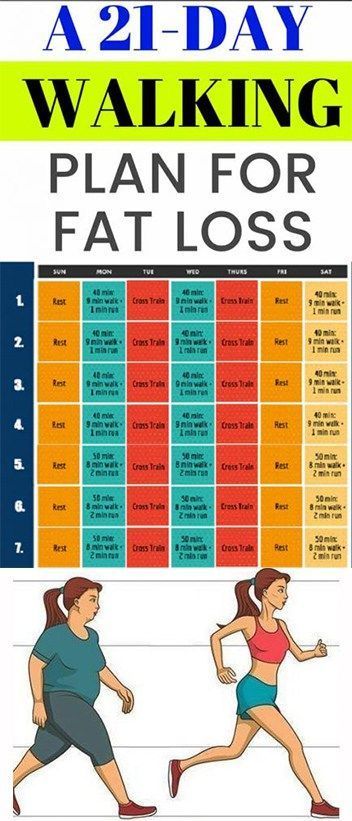
CICO encourages you not to pay too much attention to quality, but to count calories in small amounts. In a healthy diet, your food should have a balance of lean protein, good fats, and carbohydrates. This is not the case with the CICO diet. It doesn’t tell you what foods are healthy and which are not. It allows you to eat whatever you please, but it doesn't teach you how to eat healthy. You can end up becoming starved if you do this.
CICO diet is a calorie-counting diet
CICO diet isn't for everyone. Instead of restricting how much you eat, the CICO diet counts calories. One calorie is equal to one degree Celsius of heat. In the past scientists used food to determine calories. This practice wasn't very healthy and didn't always produce the best results. Besides, it also led to skin breakouts, lethargy, and eating disorders. The CICO diet doesn't limit you to one type of food, either.

It can cause calorie-counting issues
CICO diet can have many adverse effects on your health that are not good for you. The CICO diet is not good for your health. It can lead to weight loss and eating disorders. Being thin is not necessarily a sign of being healthy. You can even have a heart attack if your body is thin. CICO does not help you to live a healthy lifestyle.
It can make it difficult to feel full.
You've probably read books on the CICO diet. It focuses on eating less calories than you burn. Although this diet requires that you eat fewer calories than you expend, it doesn't mean that you'll be hungry all the time. This simply means you must eat within your body's calorie limits. To follow the CICO diet, you need to know your basal metabolism rate. This is how many calories your body uses each day to digest food.
It's not healthy
CICO diet ignores quality. This is a huge flaw. CICO diet allows you to eat junk food as well as real food. This will increase your chances of developing nutrient deficiencies, and can even lead to shorter lifespans. Extreme eating habits are encouraged by this diet, which encourages dieters to eat a variety of junk foods and starve themselves. This diet is not just about weight loss.

It's not sustainable long term.
It's hard to say exactly what it means to be on a Cisco diet, but it's a pretty good indicator of the company's carbon footprint. The company produced 832,000 metric tonnes of greenhouse gases in 2007, which is a substantial amount. These emissions are from leased and owned facilities, vehicles and airline travel. Cisco's corporate goal for 2015 is to reduce carbon dioxide emissions by 15%, in an environment where carbon prices continue to rise and spiral.
FAQ
How to Create an Exercise Routine?
You must first create a routine. You need to know what you will do each day and how long you will spend doing it. This will help you plan ahead and prevent procrastination.
You should also ensure you have plenty to choose from when working out. Exercise shouldn't be boring. Otherwise, you'll lose motivation.
Keep track of your progress. It's crucial to track your weight changes over time.
You can lose weight quickly if you do not gain weight. On the other hand, if you gain too much weight, it becomes harder to stay motivated.
You should find a balance between weight gain and weight loss. If you are unhappy about where you are, it will make you less likely to exercise.
How does intermittent fasting impact my sleep?
Yes, intermittent fasting does affect your sleep. If you skip meals, your hunger hormones will increase. As a result, you may find yourself waking up at night.
This is why most experts recommend skipping breakfast. Experts recommend having a light snack before going to bed.
If you still feel hungry after eating this snack, you may want to eat a small breakfast before going to bed.
Don't overeat. You will end up gaining weight rather than losing it.
What can I eat while on intermittent fasting in order to lose weight?
You can lose weight by cutting out carbs. This means that you should cut out carbohydrate-based foods like bread, pasta and rice.
Because it makes you feel fuller, you'll want to limit your intake of protein. So you won’t feel hungry as often.
Instead, focus on foods that contain healthy fats, such as olive oil, avocado, nuts, and seeds. These foods can keep you satisfied for hours after they are eaten.
It's important to make sure you're drinking plenty of water, too. Water is important for your body's ability to stay hydrated and helps you burn more fat.
You may find that you actually crave these foods when you fast. This doesn't mean that you must give in to your cravings. You might gain more weight if you do.
You can avoid overeating by being mindful of how much water you consume each day. Drink a glass water whenever you feel hungry.
Although it might seem counterintuitive, this is actually proven to be a great way to lose weight. One study published in Obesity showed that plain water was more nutritious than sugary drinks.
Plain water was also shown to reduce hunger. So if you really want to lose weight, skip the sweetened beverages and stick to water.
Weight loss doesn't require you to restrict your intake of calories or eat less. Instead, you should make small lifestyle changes.
You can swap your breakfast sandwich for an oatmeal bowl. Try swapping your afternoon cookie to a piece or fruit.
These simple swaps can add up over time to help you shed excess weight without spending hours in your kitchen.
What Amount of Weight Can You Lose In A Week?
The amount of weight you can lose depends on your current body fat percentage. The first thing to do is to calculate how much weight you want to lose and then find out what your BMI (Body Mass Index) is. Your BMI tells us how much weight you should lose in order to achieve this goal. If your BMI is 25 or greater, you're overweight. If your BMI is 30 or higher, you're obese.
For example, if you weigh 200 pounds, your BMI would be calculated at 28.7. To reach a healthy weight, you would need to lose 70 pounds. To see if you're overweight, visit www.healthyminds.com/bmi/.
Once you have your BMI, you are able to use this formula for calculating how many pounds each week you will lose.
(Your Goal Weight - Current Weight)/BMI * 7 Number Of Pounds Lost Per Week
To lose 50lbs in a month you will need 2 weeks worth of exercise. This equals 56 days. Then, divide that by 7 pound per day. This works out at 8.3 pounds per week.
You could also try this calculator from www.weightlosscalculator.net. It provides an estimate of the number of calories you should consume each day to lose 12 pound per week.
Statistics
- According to a study sponsored by the American Council on Exercise, a person weighing around 140 pounds (64 kg) would burn 108 calories at a 30-minute beginner's Pilates class or 168 calories at an advanced class of the same duration (26). (healthline.com)
- Another study found that 24 weeks of weight training led to a 9% increase in metabolic rate among men, which equated to burning approximately 140 more calories per day. (healthline.com)
- One 6-month study showed that simply doing 11 minutes of strength-based exercises 3 times per week resulted in a 7.4% increase in metabolic rate, on average. (healthline.com)
- One study in 9 active men found that HIIT burned 25–30% more calories per minute than other types of exercises, including weight training, cycling, and running on a treadmill (18Trusted Source (healthline.com)
External Links
How To
How to exercise to lose weight
One of the best ways you can lose weight is to exercise. Many people do not know how they should exercise. Cardio exercises should include running, biking, swimming, walking, etc. and strength training exercises like lifting weights, pulling-ups or pushing ups, squats and lunges. Combining both of these exercises will help you lose weight the most. Start exercising and find friends to support you. You can either go to the gym or walk around your local area. You need to keep doing the same thing no matter what kind of activity. It is easy to lose track of your workouts when you first begin. Don't despair if things don't go as planned. Keep going!